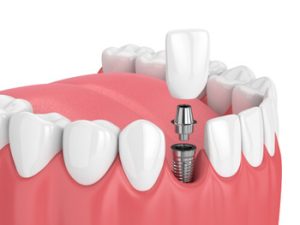When thinking about getting dental implants, it’s important to weigh more than just the appeal of places famed for tourism and dining experiences, like Bangkok. While it’s true that such destinations often offer dental procedures at competitive prices, prioritising high-quality healthcare is crucial. To make an educated decision about dental implants, carefully consider several essential aspects that affect both your wellbeing and the success of the treatment.
What Are Dental Implants?
Dental implants serve as synthetic tooth roots, usually crafted from titanium, intended to offer a permanent foundation for fixed or removable prosthetic teeth. Different kinds include endosteal implants, which are inserted directly into the jawbone, and subperiosteal dental implants, which sit under the gum but atop the jawbone.
Why Should You Select Australia Instead of Bangkok for Dental Implants?
Quality of Healthcare and Regulations

Advanced Technology and Training
Australia is known for its advanced medical technology and highly trained professionals. Dental practitioners in Australia often use cutting-edge technology for dental implants treatment, which includes 3D imaging and computer-aided design and manufacturing (CAD/CAM) to ensure precision and optimised results. Moreover, Australian dentists undergo extensive training and are required to participate in continuous professional development to keep up with the latest advancements and techniques in dental implant treatments.
Customised and Comprehensive Care
Unlike many overseas options where the focus might be on attracting international tourists for quick treatments, Australian dental clinics typically provide a more bespoke approach. This personalised care ensures that all aspects of the patient’s health and dental needs are considered. In Australia, a dental implant procedure is not just about installing the implant; it involves comprehensive pre and post-operative care, which is crucial to the success of the treatment.
Follow-up and Accountability
Post-operative care and accountability are other significant advantages of choosing Australia for your dental implants. Australian dental clinics provide thorough follow-up care to monitor the success of dental implant cases and manage any complications that may arise. This ongoing care is crucial for ensuring the long-term success of dental implants. In contrast, receiving treatment abroad can complicate or altogether prevent effective follow-ups, especially if travelling back is not feasible.
Legal Recourse and Patient Rights
Patients receiving dental implant treatments in Australia have the benefit of protected consumer rights and clear legal recourse in the event of malpractice. Australia’s healthcare system offers avenues for complaints and resolution through fair and transparent processes, providing patients with security and peace of mind. When undergoing procedures like dental implants in Bangkok or other overseas locations, navigating legal and healthcare systems can be more challenging, particularly in cases where the outcome does not meet the expected standards.
Leading Dental Implant Solutions
Australia is home to some of the world’s leading dental implant experts and pioneering dental research. This reputation for excellence ensures that Australian patients have access to some of the most innovative and effective treatments available. Opting for a leading dental centre in Australia means tapping into a wealth of expertise and a track record of successful outcomes, which are crucial for complex dental implant cases.
Choosing where to get dental implants involves considering not just the cost but also the quality of care, technological advancements, and post-treatment services. Australia’s high standards in healthcare, advanced technology, comprehensive patient care, and robust legal protections make it an excellent choice for anyone looking to invest in their oral health. The peace of mind that comes with receiving treatment in a well-regulated, advanced, and patient-focused healthcare system is invaluable.
What Is the Process for a Dental Implant Procedure?
Initial Consultation and Planning

Preparing for Surgery
Before the dental implant treatment begins, the patient may undergo preliminary procedures to address any issues that could compromise the implant success. For instance, if there’s significant bone loss, a bone graft might be necessary to strengthen the jawbone. The dental treatment plan is tailored to each patient’s conditions, such as the presence of a missing tooth or multiple missing teeth, and it may include various preparatory steps to ensure optimal outcomes.
Dental Implant Surgery
The actual implantation process starts with the surgical placement of the dental implant posts into the jawbone. These posts serve as the new roots for the missing teeth and are typically made of titanium, which is known for its durability and biocompatibility. The surgery is usually performed under local anaesthesia, and sedation options are available for patients who might feel anxious. The goal here is to insert the post precisely where the natural teeth once were, providing a stable base for the new teeth.
Healing and Osseointegration
After the dental implant posts are placed, a period of healing, known as osseointegration, begins. During this phase, the implant methodically unites with the jawbone, building a durable foundation for the replacement teeth.
This process can take several months, during which the patient might wear a temporary denture or bridge to aesthetically fill the gap of the missing tooth or teeth. Appropriate healing is vital to the outcome of the dental implant treatment, ensuring that the implant is stably bonded with the bone.
Attaching the Abutment and Dental Prosthesis
Once osseointegration has fully occurred, attaching an abutment to the implant follows. This part connects the implant post to the eventual dental restoration, such as dental implant bridges, crowns, or implant dentures.
In some cases, the dental abutment can be placed during the initial implant surgery; in others, a minor follow-up surgery might be needed to expose the implant and fit the abutment.
The final stage of the dental implant procedure is the fitting of the artificial teeth. These prosthetics are designed to match the hue, shape, and size of the patient’s original teeth, providing a cosmetic solution that looks and functions like natural teeth. The dental clinic ensures that the fit and bite are comfortable, making adjustments as necessary to achieve the best possible outcome.
What Are the Key Advantages of Dental Implants?
Persistence and Reliability
Known for their strong construction and sustained performance, dental implants provide a lasting remedy for lost teeth. They are built to withstand many years, and with the right care, they could last a lifetime.
This makes them an economically sensible choice over time. Unlike other dental solutions that might require periodic replacement or maintenance, dental implants provide a steadfast foundation for various types of dental prosthetics like crowns, bridges, and dentures.
Bone Health Preservation
A considerable benefit of dental implants is their ability to prevent bone loss that often follows tooth loss. The absence of a tooth leads to a lack of stimulation, which can cause the jawbone to deteriorate over time. Implants serve as replacements for tooth roots, delivering essential stimulation to preserve bone density and integrity. This stimulation is vital for maintaining overall oral health and sustaining the face’s natural contour, thus avoiding the sunken appearance typically linked to tooth loss.
Enhanced Oral Hygiene
Dental implants have a distinct advantage when it comes to maintaining good oral health. Unlike dental bridges, which require adjacent teeth to be filed down to support the prosthetic, implants stand alone without affecting surrounding teeth. This preservation of the natural teeth enhances oral health and simplifies hygiene routines. Dental implants allow for normal brushing and flossing, which helps in reducing the chance of tooth decay and gum disease.
Comfort and Confidence Boost
The secure fit of dental implants offers comfort and assurance that other dental solutions like dentures cannot match. Implants are embedded in the jaw and bond with the bone, eliminating the common issues of dentures that slip or shift. This stability allows individuals to eat, speak, and laugh without concern, enhancing confidence and social interaction. The natural feel and appearance of implants also contribute to a more natural smile, boosting the individual’s self-esteem.
Support for Facial Structures
Dental implants play a paramount role in supporting and maintaining the natural structure of the face. They help prevent the facial sagging that often occurs with bone loss due to missing teeth. By imitating the function of natural tooth roots, implants maintain the integrity of the jaw bone and support the facial tissues, preserving the person’s natural facial contours.
Versatile Dental Solutions
The adaptability of tooth implants makes them suitable for a broad range of dental restoration needs. Whether it’s a single crown to replace one missing tooth or full implant-supported dentures to address complete tooth loss, implants can be used in various configurations. This versatility allows dental professionals to tailor treatments to meet the distinct needs and preferences of their patients, enhancing treatment outcomes.
Dietary and Nutritional Improvements
One of the more practical benefits of dental implants is the ability to eat a wider variety of foods. Dentures can limit the types of food one can comfortably consume, particularly hard or sticky foods. Dental implants function like natural teeth, letting individuals chew efficiently and enjoy a more diverse diet. This capability is important not only for pleasure but also for nutritional health, as it enables a balanced diet that includes crucial nutrients found in harder-to-chew foods.
Opting for dental implants offers a multitude of benefits that go beyond just aesthetic improvements. Dental implants are a vital investment for maintaining oral health and improving quality of life, delivering a solution that closely resembles original teeth in both functionality and visual appeal. With the potential to improve nutritional intake, maintain bone structure, and boost self-confidence, dental implants represent a transformative solution for individuals facing tooth loss.
What Actions Are Necessary to Preserve the Condition of Dental Implants?
Commitment to Routine Dental Visits
Maintaining the health and durability of dental implants starts with regular dental check-ups. These visits are essential for evaluating the status of the implants and overall oral health. During these visits, dental professionals can perform targeted cleanings that reach below the gum line, where regular brushing and flossing might not be as effective. This level of care is vital to prevent diseases that can undermine the stability of the implants.
Daily Oral Hygiene Practices
The daily upkeep of dental implants is critical and should mirror the care for natural teeth. Using a soft toothbrush and a gentle, non-abrasive toothpaste can prevent damage to the implant surfaces. It is also beneficial to incorporate tools such as water flossers, which can be particularly effective in cleaning around implants and other hard-to-reach areas. This routine helps in minimising the risk of inflammation and infections that could lead to complications with the implants.
Steering Clear of Risky Behaviours
The durability of dental implants can be compromised by certain lifestyle choices. For example, smoking can significantly affect the healing and maintenance of implants due to its negative impact on gum health. Likewise, habits like chewing on hard objects or using teeth as tools can exert undue stress on implants. Educating patients about these risks and encouraging them to avoid such behaviours is part of maintaining the health of their implants.
Managing Bruxism
For patients who grind their teeth, protecting dental implants is particularly important. Persistent grinding can place great stress on implants, risking damage not just to the implant but also to the surrounding bone structure. Wearing a custom-fitted night guard can mitigate these risks by cushioning the impact of grinding, thus protecting the integrity of both the implants and the patient’s natural dental structure.
Nutritional Choices That Benefit Oral Health
A diet that supports oral health can positively affect the longevity of dental implants. Foods that are rich in calcium and phosphorus, such as dairy products and lean meats, can strengthen bone structure. Antioxidant-rich foods, like leafy greens and fresh fruits, can promote gum health and support the body’s healing processes. Conversely, reducing the consumption of sticky, sugary foods helps in preventing bacterial growth around the implants.
Prompt Response to Signs of Trouble
Should any issues arise, such as discomfort or signs of infection around the implant site, immediate action is recommended. Prompt communication with a dental professional can lead to early detection of potential problems. Quick and appropriate interventions can prevent the escalation of issues, thereby preserving the function and appearance of dental implants.
Proactive Implant Care
Active engagement in the care of dental implants through regular professional check-ups, conscientious home care, avoiding harmful habits, and making healthy dietary choices play a significant role in their success. This comprehensive approach not only protects the investment in dental implants but also contributes to overall dental health, ensuring that patients benefit from their implants without complication over the long term.
Make an Informed Decision for Your Dental Wellbeing

At our clinic, we offer leading-edge treatments and comprehensive support throughout your post-procedure recovery, all within the comfort of your local community. Selecting our services means you are choosing dependability and superior care, ensuring that all your dental needs are meticulously addressed. For a deeper understanding of how we can improve your dental health or for personalised guidance, please feel free to contact us at (02) 9159 6237.
Discover how our local expertise can offer you exceptional care and confidence in your dental decisions. Start your journey to a perfect smile with just a simple phone call today!
Note: Any surgical or invasive procedure carries risks. Before proceeding, you should seek a second opinion from an appropriately qualified health practitioner.
References:
https://www.mayoclinic.org/tests-procedures/dental-implant-surgery/about/pac-20384622
https://www.medicalnewstoday.com/articles/327515

